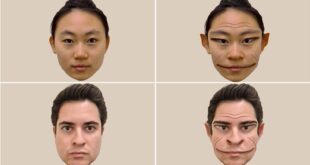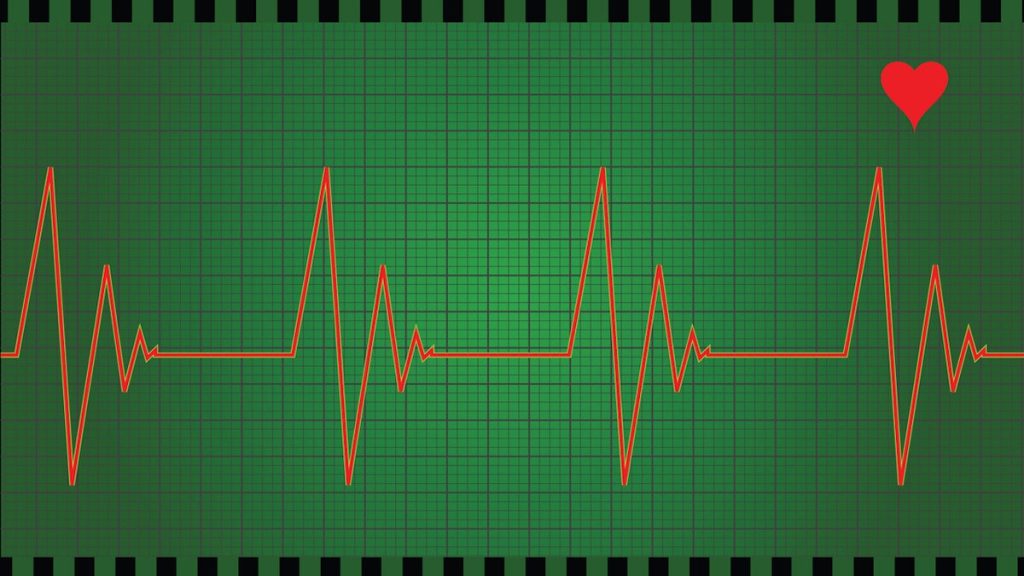
Most of us have had that unsettling sensation when our heart seems to flutter or “skip” a beat — but when heart palpitations start happening more frequently, you may wonder if it’s something to get checked out.
Dr. Bradley Serwer, a cardiologist and chief medical officer at VitalSolution, a Cincinnati, Ohio-based company that offers cardiovascular and anesthesiology services to hospitals nationwide, noted that palpitations are very common and almost everyone experiences them at some time.
“Palpitations can occur at any time, but how and when we feel them or sense them varies,” he told Fox News Digital.
5 HEALTHY HABITS MAY BE THE SECRET TO LIVING LONGER, FLORIDA NEUROSURGEON REVEALS
“Many people feel palpitations when they lie down to go to bed, when all the external stimulation has been removed and we are trying to fall asleep.”
What causes heart palpitations?
Palpitations can occur for a multitude of reasons, Serwer said.
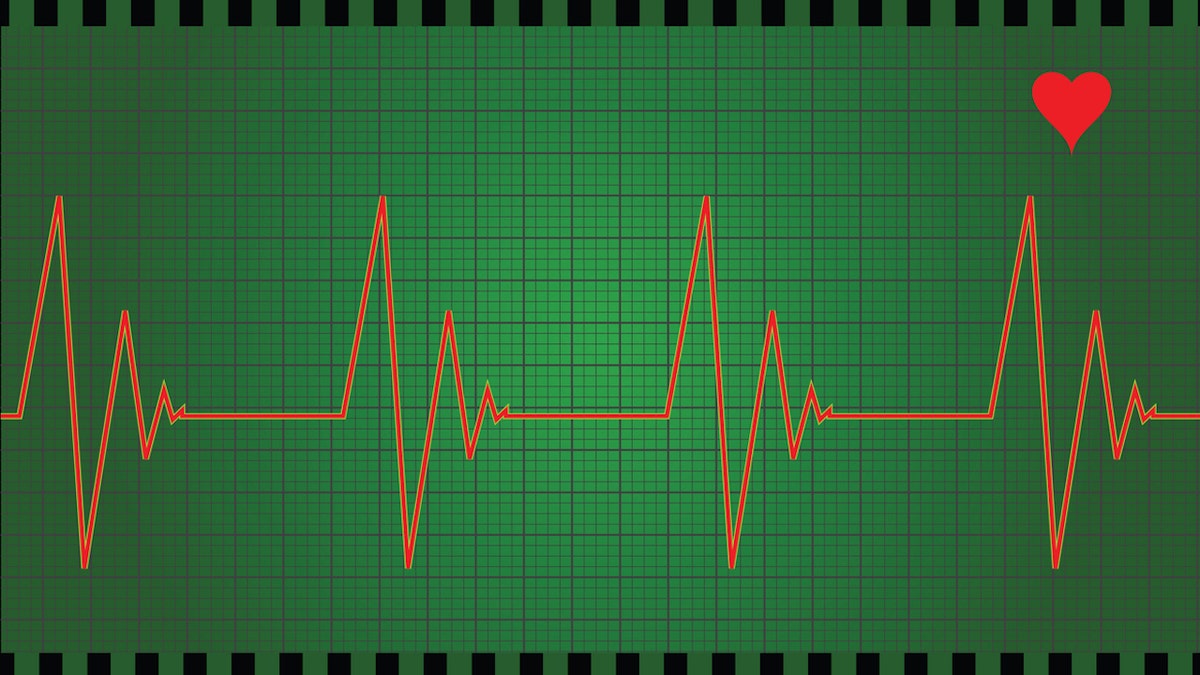
The most common reason for palpitations is a premature heartbeat, also called premature ventricular or premature atrial contractions, according to a cardiologist who spoke with Fox News Digital. (iStock)
The most common reason is a premature heartbeat, also called premature ventricular or premature atrial contractions.
“The heart is constantly filling and then contracting to pump blood to the body,” the doctor said. “When a premature heartbeat is experienced, it is typically a very weak heartbeat, as the heart hasn’t properly filled with blood.”
GENDER-SPECIFIC WARNING SIGNS OF CARDIAC ARREST ARE REVEALED IN STUDY: ‘NEW PARADIGM FOR PREVENTION’
“Following the premature beat, the heart resets with a slight compensatory pause. This extra time allows the heart to fill with more blood, and therefore the next normal heartbeat is typically a very vigorous contraction.”

Dr. Bradley Serwer (pictured at left), a cardiologist in Cincinnati, Ohio, noted that palpitations are very common and almost everyone experiences them at some time or another. (Dr. Bradley Serwer/iStock)
This is typically what gives people the sensation of a flutter in their chest, Serwer said.
In other instances, palpitations may be felt when the heart is racing.
“If you are exercising and your heart rate rises to 150 bpm, it feels normal and is expected given your physical exertion,” Serwer said. “However, if your heart rate is going 150 beats a minute while at rest, it can be somewhat uncomfortable.”
MEN’S HEART DISEASE RISK DOUBLES WITH THESE TYPES OF JOB STRAIN, SAYS NEW STUDY
“These types of palpitations can occur with different types of abnormal heart rhythms, such as atrial fibrillation (an irregular and often very rapid heart rhythm) or ventricular tachycardia (a heart rhythm problem caused by irregular electrical signals in the heart).”
When are heart palpitations worrisome?
When extra heartbeats occur, they are almost always benign (non-harmful), the doctor said.
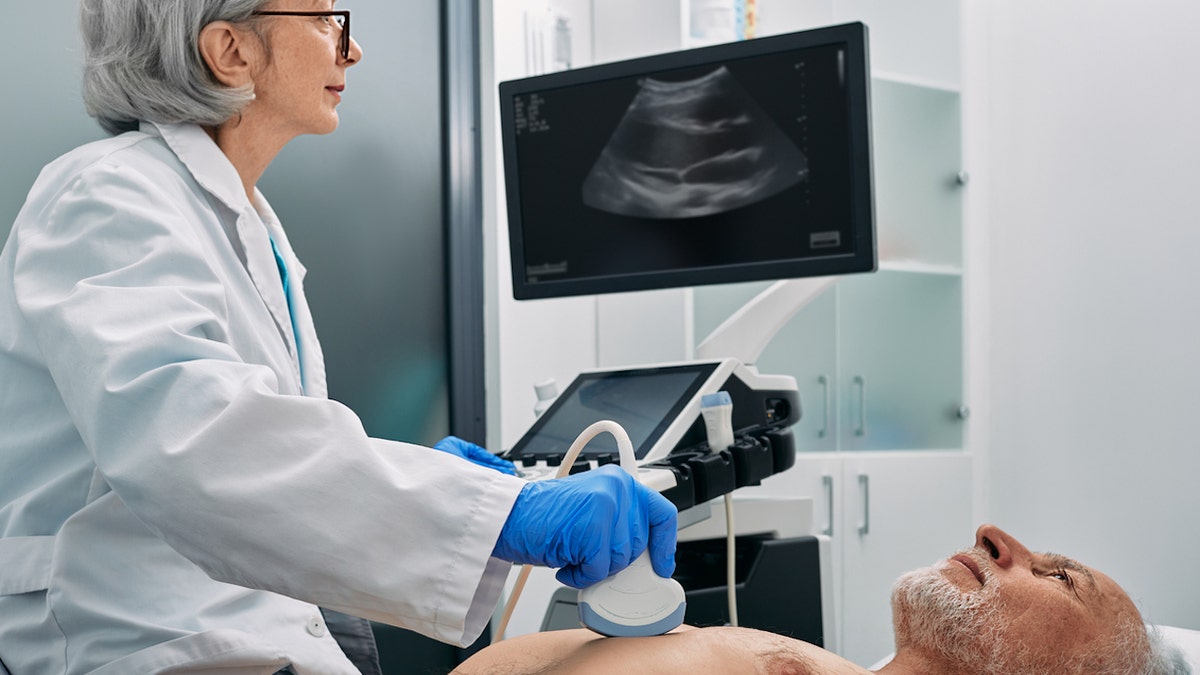
“I recommend that people seek a cardiac evaluation if they have sustained palpitations lasting longer than a few minutes,” a cardiologist told Fox News Digital. (iStock)
If you sense a sudden-onset rapid heart rate that does not resolve quickly, however, it may be a warning sign of some type of atrial fibrillation, Serwer said.
“I recommend that people seek a cardiac evaluation if they have sustained palpitations lasting longer than a few minutes,” he told Fox News Digital.
TIAS AND MINI-STROKE RISKS: CARDIOLOGIST SHARES WARNING SIGNS AND PREVENTION TIPS
“I also recommend they seek immediate medical attention — regardless of the duration of the palpitations — if they are associated with dizziness, passing out, chest pain or shortness of breath, as they may be indicative of more concerning abnormal heart rhythms.”
How are heart palpitations resolved?
The first step in treating palpitations is to understand what’s causing them, Serwer said.
In his practice, Serwer said the team often places heart monitors on patients so they can identify what their heart is doing when they feel the sensation, which can help determine the sort of therapy they may require.
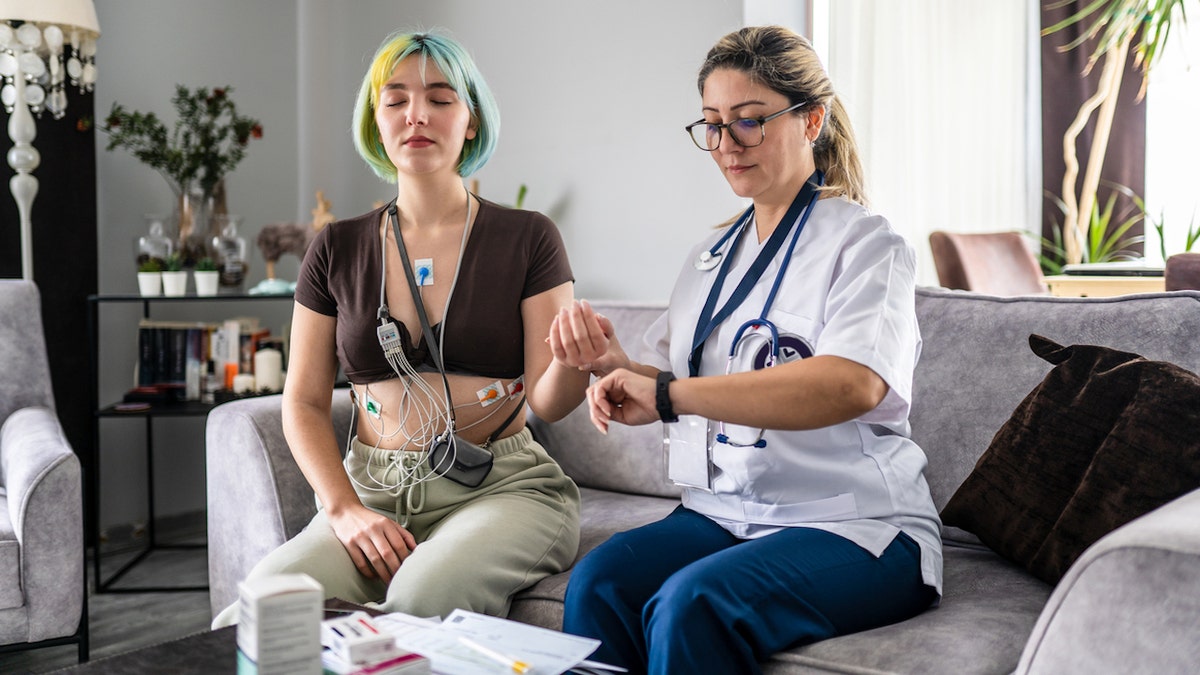
Having the patient wear a heart monitor can help the doctors determine the cause of the palpitations. (iStock)
“If palpitations are from premature heartbeats, the patient often does not require any therapy,” he said.
Serwer often recommends that patients avoid common triggers, such as stimulants of any kind — caffeine, sugar, decongestants, nicotine or many types of drugs.
CLICK HERE TO SIGN UP FOR OUR HEALTH NEWSLETTER
“Stress is also a big contributor to palpitations,” he added. “Often stress reduction helps decrease the frequency of palpitations dramatically.”
If therapies are required, there are medications that can suppress the abnormal heartbeats or heart rhythms, the doctor said.
If those fail, more invasive procedures, called cardiac ablation, may be helpful.
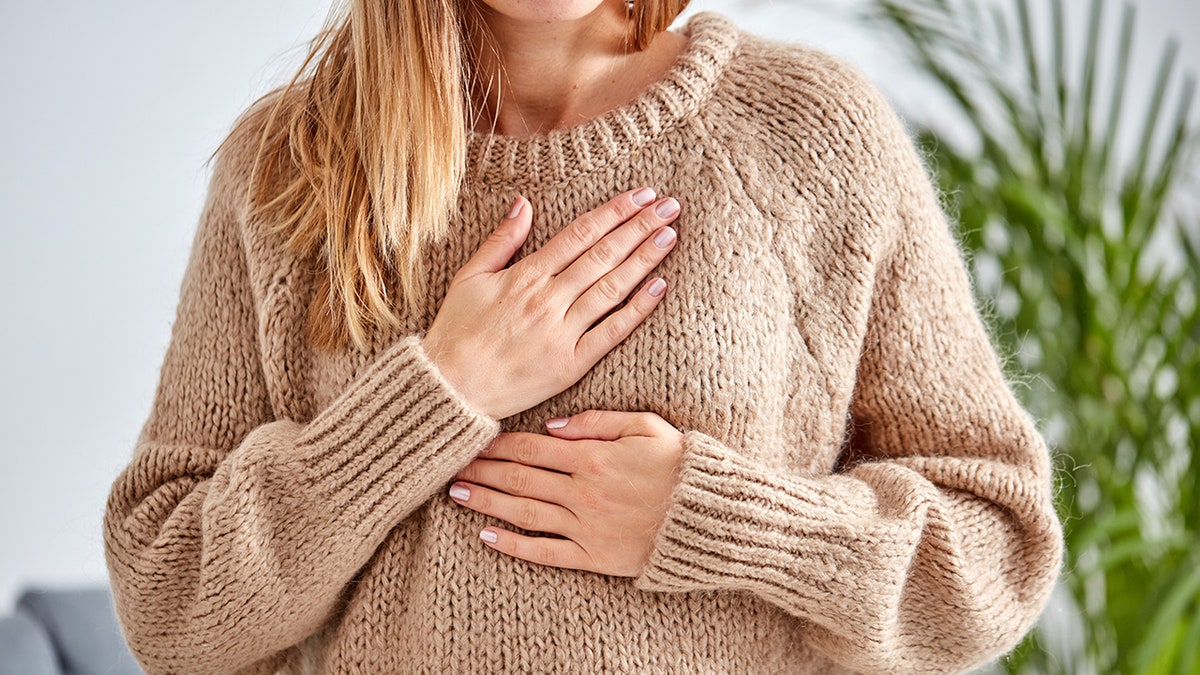
The most common reason for a palpitation is a premature heartbeat, also called premature ventricular or premature atrial contractions. (iStock)
“If palpitations are new — especially if they are associated with dizziness, passing out, chest pain or shortness of breath — I recommend seeing your health care team,” Serwer said.
CLICK HERE TO GET THE FOX NEWS APP
“It’s important to differentiate between the innocent palpitations and those that could be potentially life-threatening.”
For more Health articles, visit www.foxnews.com/health.

 Latest Breaking News Online News Portal
Latest Breaking News Online News Portal




